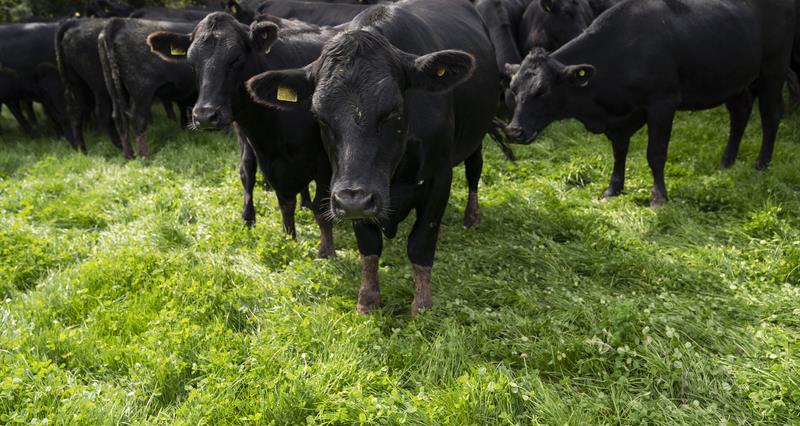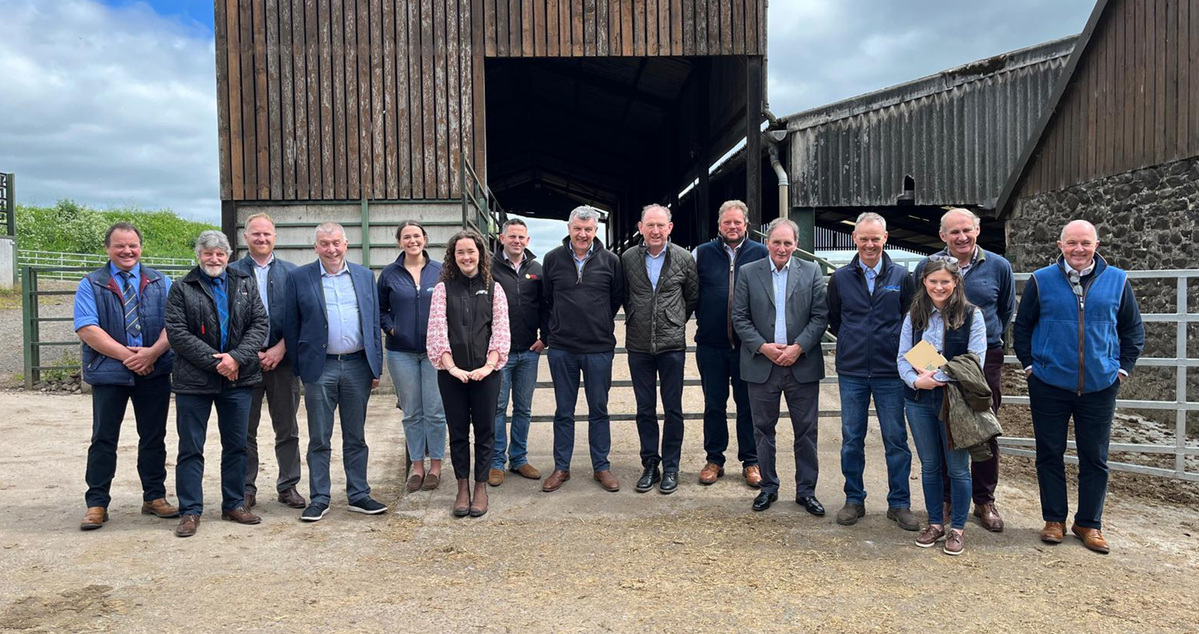The consultation from Defra centres around the introduction of the LIS (Livestock Information Service) for cattle and the use of BeID (Bovine Electronic Identification) tags.
Bovine eID / BeID (Bovine Electronic Identification)
Bovine eID or BeID stands for “Bovine Electronic Identification” and is the new proposed system to identify cattle. These would replace the traditional ear tags used on cattle.
It is hoped that a new electronic system would promote safer handling of cattle, reduce errors in the reporting of data and lead to potential improvements to farm productivity and animal husbandry.
Defra proposes that all new-born calves are tagged with a BeID. For calves with BeID tags, keepers will no longer need to keep, locate, and manually update paper cattle passports. It is hoped this will also allow faster processing through the supply chain.
Proposals to potentially retag the existing herd with Bovine eID tags are under consideration and will be communicated later.
Under the proposals, either LF (Low Frequency) or UHF (Ultra High Frequency) technology RFID (Radio Frequency Identification) could be used. The tags would have an RFID microtag embedded into them which would carry the same number printed on the tag and forms the official identification.
Technical information on BeID
To successfully introduce bovine eID, the current numbering string used for cattle identification would change to a WYSIWYG (What you see is what you get) number, compliant with ICAR (International Committee for Animal Recording) and ISO (International Organisation for Standardisation) standards.
To adhere to these standards, the identification numbering string for bovine animals is either the two-letter alpha country code (GB) or the three-digit numeric country code (826) and a unique code for the animal consisting of a maximum 12 digits. There will be no check digit, as is currently the case on current cattle tags.
The new ID number will consist of a zero prefix, a six digit herd number, followed by a five-digit identification number that starts at 70000.
This will provide 30,000 available numbers per holding. When a keeper reaches the maximum tag number of 99999, a new herd number will be allocated to them, and the identification number will start again at 70000.
| C |
C |
S |
H |
H |
H |
H |
H |
H |
A |
A |
A |
A |
A |
| G |
B |
0 |
1 |
2 |
3 |
4 |
5 |
6 |
7 |
0 |
0 |
0 |
0 |
Table 1: A table showing the numbering format for newborn calves written on the tag.
| C |
C |
C |
S |
H |
H |
H |
H |
H |
H |
A |
A |
A |
A |
A |
| 8 |
2 |
6 |
0 |
1 |
2 |
3 |
4 |
5 |
6 |
7 |
0 |
0 |
0 |
0 |
Table 2: A table showing the numbering format held on an BeID chip.
C = Country coder, S = Series number, H = Herd number, A = Animal number
Livestock Information Service
The LIS (Livestock Information Service) is an existing IT platform that provides digital traceability data for sheep, goats, and commercial deer. Under the proposals of Defra’s consultation, cattle will be added to this platform.
It is hoped that this platform will avoid any duplication of data that is included in both holding registers and the current CTS, that it will help to “protect public and animal health, maintains consumer confidence, and delivers more focussed support for the livestock industry”.
Information held on the LIS will be accessible in “close to real time” by anyone authorised to do so. This will remove the need to keep physical passports for electronically identified cattle. It will be possible to amend or correct records in certain circumstances.
The LIS will enable keepers to record whole movements, with both starting location and end destination. This will be reported by the sending keeper, who will provide the point of departure and destination CPS (County Parish Holding) numbers, individual ID numbers, and date of movement.
When cattle arrive at their destination, the receiving keeper will check the details and confirm the move has taken place. If there are any issues, the receiving keeper will have opportunity to amend, query, or decline the movement report.
The LIS will also give keepers the option to pre-notify movements and report additional information on transport, such as haulier and the registration number of the vehicle used to transport the cattle. It is hoped this will all allow keepers to provide details of planned moves at a time that suits them.
Further detail on the proposals outlined by Defra can be found at: GOV.UK | Changes to Bovine Identification, Registration, and Movement in England - Consultation document

